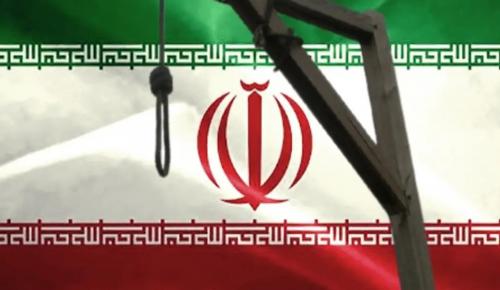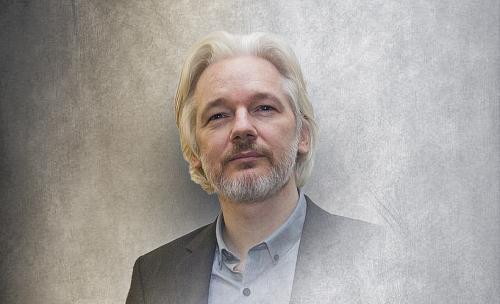government: presidential republic
state of civil and political rights: Not free
constitution: 8 September 1963; effective 22 November 1976; revised several times the last on November 12, 2008
legal system: socialist, based on French and Islamic law
legislative system: bicameral Parliament consists of the National People's Assembly (Al-Majlis Ech-Chaabi Al-Watani) and the Council of Nations
judicial system: Supreme Court, Constitutional Council. Algeria's judicial system does not include sharia courts
religion: Sunni Muslim (state religion) 99%, Christian and Jewish 1%
death row: At least 943 (up to July, 22, 2015 www.deathpenaltyworldwide.org)
year of last executions: 0-0-1993
death sentences: 27
executions: 0
international treaties on human rights and the death penalty:International Covenant on Civil and Political Rights
1st Optional Protocol to the Covenant
Convention on the Rights of the Child
Convention Against Torture and Other Cruel, Inhuman or Degrading Treatment or Punishment
African Charter on Human and Peoples' Rights
Statute of the International Criminal Court (which excludes the death penalty) (only signed)
situation:Algeria’s laws prescribe the death penalty for a range of crimes including ordinary crimes.
The Penal Code provides for the application of the death penalty for serious offences including: treason and espionage, attempts to change the regime or actions aimed at incitement, destruction of territory, sabotage to public and economic utilities, massacres and slaughters, participation in armed bands or in insurrectionary movements, counterfeiting, murder, acts of torture or cruelty, kidnapping and aggravated theft.
Former President Liamine Zeroual declared a moratorium on executions in December 1993 and no executions have been carried out since.
The last executions took place in August 1993, when seven armed Islamists were executed. They had been condemned to death for a 1992 attack on Algiers airport by special courts, which have since been dissolved.
On April 15, 1999, Abdelaziz Bouteflika was elected President of Algeria. After 7 years of civil war, 100,000 murders, hundreds of missing people, unemployment and institutional difficulties, the new President launched a policy for reconciliation. Since then, on the legislative front, a number of offenses for which capital punishment was provided were subject to a cancellation pure and simple (such as economic crimes) or a revision that led to the replacement of capital punishment by imprisonment.
Furthermore, no new law in Algeria provides for the death penalty. In addition, several death sentences were commuted to prison terms by presidential pardon.
In June 1999, the Algerian Parliament approved a law providing for reduced prison terms to be meted out to members of armed Islamic fundamentalist groups. Militant fundamentalists who had not perpetrated any killings for six months and were ready to testify against their accomplices could benefit under this law. The following month President Abdelaziz Bouteflika pardoned thousands of fundamentalists on the basis of this national reconciliation law, which was approved by a majority of 84.96% of voters in a national referendum held in September 1999.
In 2001 President Bouteflika pardoned 7,000 prisoners and 115 inmates condemned to death had their sentences commuted to life imprisonment. However, terrorist attacks and subsequent capital sentences have continued to the present day.
On June 27, 2004 Justice Minister Tayeb Belaiz pledged to abandon the death penalty for all but serious crimes such as terrorism and treason, media reports said. The newspaper Al-Sharq Al-Awsat on June 29, 2004 reported that Belaiz’s proposal also aimed to put an end to the widely-condemned practice of torture in Algerian prisons and could be submitted to parliament by autumn. The EU had repeatedly requested Algeria to abolish the death penalty and eradicate torture. Algeria intended to co-operate more closely with European authorities, that refuse to hand over Algerian nationals detained on the continent on charges of terrorism because of the existence of the death penalty in the north African state.
The European Convention on Human Rights binds EU countries to reject extradition requests if there is a possibility of a death sentence. On April 3, 2006, Algeria approved a new criminal code that did not scrap the death penalty. It had seemed as though the government was intent on abolishing capital punishment, however, the new code retained a full version of ‘Article 5’ foreseeing its application.
In recent years, some political activists, associations and lawyers pleaded for restoring the death penalty in Algeria, especially following the surge in crimes against children, which led to the introduction in December 2013 of new provisions in the Algerian Penal Code concerning the death penalty for child abductors in case the victim dies.
On 13 November 2014, Justice Minister Tayeb Louh said the restoration of the suspended death penalty in the country required an open and objective debate. Louh made the remarks as he answered a question asked by parliament members at the lower house on the reasons for non- application of the death penalty in Algeria. He said this issue should include all classes of society because of its political, social and moral characters. “Judicial sanction, in its modern sense, is not of a vindictive nature, but rather aims to protect the society by identifying personal and social causes leading to crime,” Louh said.
The war on terror
In 1992 the scope of the death penalty was extended to terrorist offences.
The political events of 1991/92 which culminated in an annulment of the vote following the election of the Islamic Front, and subsequent acts of terrorism, led to the declaration of a state of emergency and the introduction of special laws in September 1992 (anti-terrorism decree) extending the application of the death penalty. This special decree was almost entirely included in the ordinary law of 1995 that is currently applicable.
In 2012 and the first months of 2013, dozens of death sentences for terrorism, most in absentia, have been pronounced but not carried out in Algeria. At least 38 death sentences were imposed in 2015, mostly against people tried in absentia for terrorism-related offences.
In 2016, at least 50 death sentences were issued, most for terrorism, murder or rape, according to Amnesty International.
The death penalty on women
Pregnant women may not be executed under the Code of Algeria for the Organization of Prisons and the Social Reintegration of Prisoners (art. 155), in conformity with Algeria’s international obligations as a party to the ICCPR, which prohibits the execution of pregnant women as well as may not be executed women who are nursing a child who is less than 24 months in conformity with the interonational obligation to be a party to the African Charter on the Rights and Welfare of the Child, which prohibits the imposition of a death sentence on mothers of infants and young children, according to deathpenaltyworldwide.org.
United Nations
On 29 May 2012, Algeria was reviewed under the Universal Periodic Review of the UN Human Rights Council. With regard to the issue of the death penalty, Minister for Foreign Affairs Mourad Medelci said that the cultural specificities and beliefs of Algerian society needed to be taken into account, in addition to the international standards to which Algeria adhered.
At the international level, Algeria is part of the Support Group to the International Commission for the promotion of the moratorium and the abolition of the death penalty. He also co-sponsored the UN General Assembly Resolution for a moratorium on the death penalty.
On December 19, 2016 Algeria voted in favour of the Resolution on a Moratorium on the Use of the Death Penalty at the UN General Assembly, but did not confirm the co-sponsorship.










